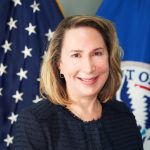Every community deserves the tools it needs to thrive.
Your donation makes that possible.
Whether you are making a one-time gift or investing in ongoing, long-term transformation, your support fuels scalable, science-based, community-led climate solutions. Geos Institute works alongside local leaders to reduce risk, build capacity, and create practical systems to cut climate pollution and build resilience , with no community left behind.
General donations of all sizes are essential to our success. If you are interested in sponsoring a major component, like launching a Climate Innovation Center or funding a Navigator in a specific state, please contact us.
Donate to Build Climate Resilience
Every dollar you give helps communities protect what they love from the growing threats of climate change.
Your Support in Action
Your gift:
- Strengthens Navigator support for under-resourced communities
- Supports the launch of Climate Innovation Centers across the US
- Promotes multi-state solutions through Regional Collaboratives
Why Your Gift Matters
When you donate to Geos Institute, you are funding collaborative, innovative, scalable approaches that meet communities where they are, with equity, local leadership, and nature-based strategies at the core. Your gift is more than a donation — it is an investment in a safer, stronger future for all.
Safe & Secure
Our donation process is encrypted and secure. We do not store your payment information and never share your data. Geos Institute is a registered nonprofit, and your gift is tax-deductible as allowed by law. We take your privacy seriously and will never share or sell your information with anyone else, nor send donor mailings on behalf of other organizations. If you have any questions about how we manage donor data, please contact us.
Additional Ways to Give
Want to create catalytic change? Beyond general donations, there are other powerful ways to support the Geos Institute’s Climate Ready America initiative. Explore the options below, and reach out when you are ready to talk to our team.
Make a transformative impact by sponsoring key elements of our nationwide climate resilience infrastructure. Your support helps communities most at risk thrive in the face of climate change. Opportunities include:
- Sponsor a Navigator
Fund a year (or more) of direct support for a group of communities in your state or territory. Navigators work one-on-one with local leaders to advance community-driven climate strategies. - Fund a Climate Innovation Center
Help plan, launch, and/or sustain a Center in a specific state. These one-stop-shop climate centers are led by local leaders and climate service providers.
Interested in one of these opportunities?
We gratefully accept gifts from donor-advised funds. This is an easy way to make the most of your charitable giving to support climate resilience.
Leave a legacy by including Geos Institute in your will or estate. We are honored to be part of your long-term investment in a climate secure future.
Prefer to give a donation directly from your bank account? We accept wire and ACH transfers.
Make a gift in memory of or in tribute of a loved one or someone who inspires you.
Southeast Campaign: We are Scaling Up
Our Southeast demonstration project shows that community-led climate solutions work, and now we are scaling up.
Through Climate Ready America Southeast, Geos Institute is actively supporting 72 Community Disaster Resilience Zones (CDRZ) designated areas across Florida, Georgia, South Carolina, and North Carolina. These communities, often rural, low-income, or historically under-resourced, are on the frontlines of climate change. And they are showing what is possible with the right tools and support.
We are raising funds to expand this model across the southeast region and build the foundation for a nationwide climate resilience network. With your support, we can:
- Sustain and grow the network of Navigators, placing expert boots-on-the-ground in more communities.
- Launch and operate Climate Innovation Centers that serve as hubs of local climate action and collaboration.
- Organize Regional Collaboratives that support Navigators and Climate Innovation Centers while addressing multi-state climate resilience challenges.
Help Us Reach Our Goal
Our current fundraising target for Phase 1 of the Southeast expansion is $5 million, which will support:
- Full-year Navigator placements in all 11 southeastern states
- Launch and operation of three new Climate Innovation Centers
- Training, technical support, and tools for community leaders
Want to direct your giving to a specific element or a specific state? Contact us.

 Robert Macnee, Ph.D. is Deputy Director of Resilience Services at Climate Resilience Consulting, where he helps governments, institutions, and communities reduce climate risk in equitable and practical ways. He holds a Ph.D. in Environmental Management focused on climate change impacts on health and communities, and brings over a decade of experience spanning economic development, resilience planning, and implementation.
Robert Macnee, Ph.D. is Deputy Director of Resilience Services at Climate Resilience Consulting, where he helps governments, institutions, and communities reduce climate risk in equitable and practical ways. He holds a Ph.D. in Environmental Management focused on climate change impacts on health and communities, and brings over a decade of experience spanning economic development, resilience planning, and implementation. Samantha Medlock is President of Climate Risk Advisors, helping communities and organizations advance equity, sustainability, and resilience. Her career began chasing floods as a local official in Texas Flash Flood Alley—a hands-on experience that still shapes her approach to climate and disaster risk management.
Samantha Medlock is President of Climate Risk Advisors, helping communities and organizations advance equity, sustainability, and resilience. Her career began chasing floods as a local official in Texas Flash Flood Alley—a hands-on experience that still shapes her approach to climate and disaster risk management.
 Jim is a multilingual world traveler. Based in Bavaria during the 1970s, Jim spent most of this period in India, Afghanistan and Nepal, where he founded and operated a charitable medical clinic serving Tibetan Refugees. He settled in Oregon in 1983 on a forested ranch in the Umpqua National Forest.
Jim is a multilingual world traveler. Based in Bavaria during the 1970s, Jim spent most of this period in India, Afghanistan and Nepal, where he founded and operated a charitable medical clinic serving Tibetan Refugees. He settled in Oregon in 1983 on a forested ranch in the Umpqua National Forest. Dr. Micah Hahn is an Associate Professor of Environmental Health in the Institute for Circumpolar Health Studies at the University of Alaska-Anchorage. She received her joint PhD in Epidemiology / Environment and Resources from the University of Wisconsin-Madison and her MPH in Global Environmental Health from Emory University. Subsequently, she was a postdoctoral fellow for the CDC Climate and Health Program, and in this position worked collaboratively with the CDC Division of Vector-borne Diseases and the National Center for Atmospheric Research. Her research focuses on understanding the health impacts of climate change and working with communities to develop locally-relevant adaptation and resilience-building strategies. Dr. Hahn is also on the Management Team of the Alaska Climate Adaptation Science Center.
Dr. Micah Hahn is an Associate Professor of Environmental Health in the Institute for Circumpolar Health Studies at the University of Alaska-Anchorage. She received her joint PhD in Epidemiology / Environment and Resources from the University of Wisconsin-Madison and her MPH in Global Environmental Health from Emory University. Subsequently, she was a postdoctoral fellow for the CDC Climate and Health Program, and in this position worked collaboratively with the CDC Division of Vector-borne Diseases and the National Center for Atmospheric Research. Her research focuses on understanding the health impacts of climate change and working with communities to develop locally-relevant adaptation and resilience-building strategies. Dr. Hahn is also on the Management Team of the Alaska Climate Adaptation Science Center. Michael is a former Founding Principal of Resilient Cities Catalyst, a global non-profit helping cities and their partners tackle their toughest challenges. He is currently the Executive Director of Climate Resilience Academy at the University of Miami.
Michael is a former Founding Principal of Resilient Cities Catalyst, a global non-profit helping cities and their partners tackle their toughest challenges. He is currently the Executive Director of Climate Resilience Academy at the University of Miami. Dr. Quintus Jett is a consultant, educator, and strategist for public causes. He has a doctorate in Organizations & Management from Stanford University, and a two-decade faculty career which spans schools, departments, and programs of business, engineering, liberal studies, divinity, and public and nonprofit management. Following Hurricane Katrina in 2005, Dr. Jett launched a volunteer project in New Orleans, which enlisted residents, students from over a dozen colleges and universities, and hundreds of others to field map the city’s Gentilly district, Lower Ninth Ward, and New Orleans East. Dr. Jett is an innovator in higher education, bridging the divide between academic research and the other priorities of the modern university, including student access and diversity, community engagement, and providing foundations for life-long learning in today’s rapidly changing world.
Dr. Quintus Jett is a consultant, educator, and strategist for public causes. He has a doctorate in Organizations & Management from Stanford University, and a two-decade faculty career which spans schools, departments, and programs of business, engineering, liberal studies, divinity, and public and nonprofit management. Following Hurricane Katrina in 2005, Dr. Jett launched a volunteer project in New Orleans, which enlisted residents, students from over a dozen colleges and universities, and hundreds of others to field map the city’s Gentilly district, Lower Ninth Ward, and New Orleans East. Dr. Jett is an innovator in higher education, bridging the divide between academic research and the other priorities of the modern university, including student access and diversity, community engagement, and providing foundations for life-long learning in today’s rapidly changing world. Scott is Monfort Professor of Atmospheric Science at Colorado State University. He has written about 100 publications in the peer-reviewed climate literature, is a former editor of the Journal of Climate, and served for five years as founding Science Chair of the North American Carbon Program.
Scott is Monfort Professor of Atmospheric Science at Colorado State University. He has written about 100 publications in the peer-reviewed climate literature, is a former editor of the Journal of Climate, and served for five years as founding Science Chair of the North American Carbon Program. Linda has many years of experience in disaster preparedness and resilience. She has been an elected official on the Linn County Iowa Board of Supervisors, Chair of the Metropolitan Planning Organization, the East Central Iowa Council of Governments, the statewide Mental Health Developmental Disability and the Linn County Board of Health. Langston is a former president of the National Association of Counties (2013-2014).
Linda has many years of experience in disaster preparedness and resilience. She has been an elected official on the Linn County Iowa Board of Supervisors, Chair of the Metropolitan Planning Organization, the East Central Iowa Council of Governments, the statewide Mental Health Developmental Disability and the Linn County Board of Health. Langston is a former president of the National Association of Counties (2013-2014). Ken works with families and organizations as a mediator, organizational consultant, trainer and facilitator. Along with his passion for helping people prepare for and reduce climate change, Ken also volunteers as a mediator through Mediation Works and is passionate about supporting youth through mentoring with Boys to Men of Southern Oregon.
Ken works with families and organizations as a mediator, organizational consultant, trainer and facilitator. Along with his passion for helping people prepare for and reduce climate change, Ken also volunteers as a mediator through Mediation Works and is passionate about supporting youth through mentoring with Boys to Men of Southern Oregon. Matthew is a retired high school teacher who was once honored as Oregon High School Social Studies Teacher of the Year. Before his teaching career he was in the restaurant business in Portland. He is also a lawyer who has been a member of the Oregon State Bar Association since 1980.
Matthew is a retired high school teacher who was once honored as Oregon High School Social Studies Teacher of the Year. Before his teaching career he was in the restaurant business in Portland. He is also a lawyer who has been a member of the Oregon State Bar Association since 1980. Andrea is the Resilience Policy Advisor for the North Carolina Office of Recovery and Resiliency. She works across state agencies and with local governments to increase the state’s resilience to the impacts of climate change.
Andrea is the Resilience Policy Advisor for the North Carolina Office of Recovery and Resiliency. She works across state agencies and with local governments to increase the state’s resilience to the impacts of climate change.